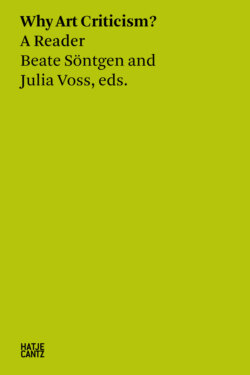Читать книгу Why Art Criticism? A Reader - Группа авторов - Страница 17
На сайте Литреса книга снята с продажи.
ОглавлениеKlimt’s letter to the Education Ministry
To the Imperial and Royal Ministry of Culture and Education:
Ten years ago, when I received the university auditorium commission, I went to work with great enthusiasm on the grand task that had been granted to me. As it is well known, my many years of earnest labors have earned me wealth of abuse that, on account of their sources, were unable to dull my zeal. This, however, has changed over the course of time. Via a series of communication, His Excellency Minister Dr. Hartel made it clear to me that my works had begun to cause discomfort for the commissioners. If my years-long work is to reach a stage of completion at all, I must first find joy in it again; and this joy will be completely absent for me so long as I must regard it as a state commission under the present circumstances. I am thus confronted with the impossibility of completing a commission that has already come so far. I have already given up on one part of this, the pendentive paintings, as the Ministry has noted and approved of. In consequence I will now resign the entire commission and will commence by gratefully returning the entire advances that I have received over the years. I request information as to the account into which I should pay this money.
Respectfully, Klimt.
In the response of the Ministry to the artist it is stated that the Ministry is absolutely unwilling to give up its claims to the paintings, claiming that the sums accepted by Klimt over the years are to be seen not as advances but as payments in and of themselves. Klimt would thus be legally obliged to deliver the paintings to the state. These paintings, which are currently again located in the artist’s studio, were in fact only loaned to him by the Ministry for the purpose of their exhibition.
The Ministry’s letter culminated with this sentence:
“... As, however, Your Honor likewise declares in the aforementioned letter that you presently are unable to complete the paintings, I allow myself the honor to address to Your Honor the urgent and earnest entreaty that each of the three ceiling paintings in question be immediately sent to this Ministry, under observation of all the required precautionary measures, in the same form in which they were delivered to Your Honor.”
At a time when it is being made so difficult for the artist to document pride in their own person, Klimt’s words here take on a far-reaching significance. In this full-blooded espousal of the ideals and rights of artistic pursuits lies a prophetic power. Klimt’s act, just as every free, bold, and selfless act of the public, will bring about an elevation and invigoration of culture. We believe the days of civil-service art are numbered.
